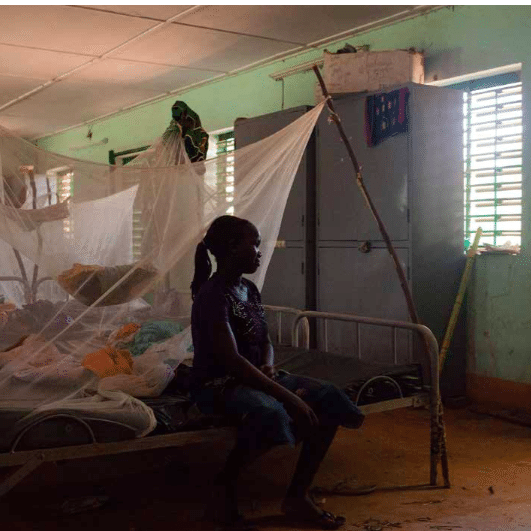Early and forced marriage in Burkina Faso is robbing thousands of girls as young as 13 of their childhood, while the cost of contraception and other barriers prevent them from choosing if and when to have children, Amnesty International said in a report published today.
Coerced and denied: Forced marriages and barriers to contraception in Burkina Faso exposes how many women and girls are threatened or beaten when they try to make their own decisions about when to marry or have children.
“Far too many women and girls in Burkina Faso have no control over their lives: they are denied their right to choose if, when and with whom they marry and whether to have children,” said Alioune Tine, Amnesty International’s Regional Director for West and Central Africa.
“Once married, girls are expected to have children as soon as possible. Early pregnancies greatly increase the risk of girls dying or experiencing life-changing physical injuries. Very few have the chance to go to school or complete their education.
“In some parts of Burkina Faso, more than half of all girls are married off before they turn 18. This has to stop. Neither family members nor the wider community should be able to make decisions about a girl’s body, denying her the chance to fulfil her own hopes and dreams for the future.”
Amnesty International researchers interviewed 379 women and girls in 2014 and 2015, documenting the multiple barriers that prevent them from accessing contraceptive health services. They spoke to 35 victims of early and forced marriage who managed to escape.
Under Burkina Faso law, girls should be aged 17 or older before they marry, yet more than half of girls (51.3%) aged 15-17 are already married in the Sahel region in the north of the country.
Forced and early marriage
Families in Burkina Faso often marry off girls to consolidate family alliances, acquire social status or in exchange for goods, money and services. The report also documents the practice in some areas of “Pog-lenga” or “bonus woman” where a bride may also bring her niece to the family of her husband as an additional girl for marriage.
Céline, a 15-year-old girl who fled on her wedding day, told Amnesty International how she was forced to marry a relative of her aunt’s husband:
“I did not want to marry the man. My aunt told me ‘if you flee, we will destroy you.’ I fled my husband’s home, but when I got to the village my family said I could not live with them.”
Girls who resist forced marriage face huge pressure from their families and society, including threats of violence. Maria, a 13-year-old girl, said:
“My dad married me [off] to a 70-year-old man who already has five wives. My dad threatened me saying if I don’t join my husband he will kill me.”
Maria fled his house and walked nearly 170km over three days to seek refuge at a shelter for young girls.
No choice over birth control
Nearly all the women and girls interviewed by Amnesty International said that they suffer verbal abuse or physical violence when they raise the issue of birth control with their partners. They also said that their lack of control over financial resources meant that they had to ask for money from their partners to buy contraceptive products.
Bintou who is 25 years old told Amnesty International:
“Right before I became pregnant with my youngest child, I went to take advantage of the free contraception week, but I arrived too late, it was already over. I had asked my husband for money. He got angry. He would systematically say no and in our culture, when the husband says something, women have to listen and obey. Asking for money already leads to beatings when it’s for groceries, so you can imagine when you want money for contraceptives.”
Despite the government’s efforts to reduce the cost of contraceptives, most women and girls said that they could not afford to buy them.
According to official figures, less than 16% of women use a modern method of contraception, dramatically increasing the risk of unwanted and sometimes high-risk pregnancies. UN agencies have highlighted that contraceptive use could greatly reduce maternal deaths.
Nearly 30% of 15- to 19-year-old girls and young women in rural areas are pregnant or have had their first baby despite the risk that they are twice as likely to die during pregnancy or childbirth as those over the age of 20.
Urgent need for reform
Under Burkina Faso law, early and forced marriage is already banned, but in an inadequate and discriminatory way: the age limit for marriage is 21 for males but 17 for females. The law only applies to marriages registered by the state – a fraction of the marriages taking place – but not traditional and religious ones.
The government has committed to changing the law but it needs to undertake these legal reforms urgently to ensure that all marriages are registered and checked, and to make 18 the minimum age of marriage for everyone.
The government has also lifted key financial barriers faced by women in accessing health care during pregnancy. Amnesty International is calling on it take the next step and make at least some contraceptive products, which women can use safely and discreetly, available free of charge.
“Burkina Faso has some of the highest rates of early and forced marriage in the world, and one of the lowest use of contraceptives,” said Alioune Tine.
“It is crucial that the government upholds the rights of girls to make their own decisions about their bodies, lives and future. Recent commitments to end child marriage constitute a welcome step, but until those promises become an everyday reality, girls will pay the price.’’

